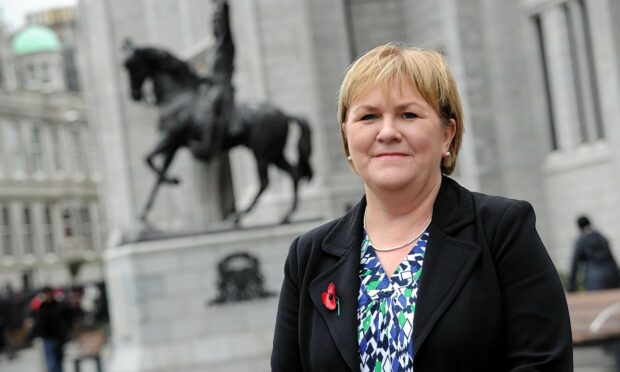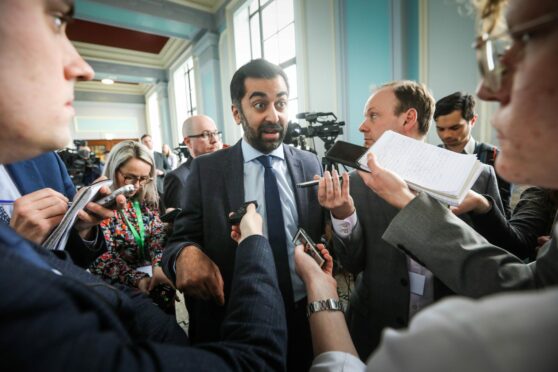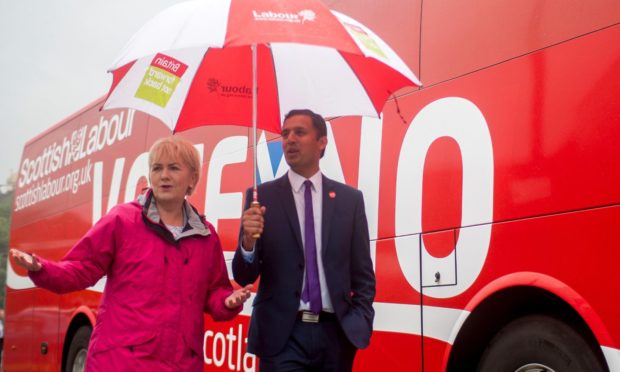It has always seemed the basic stuff of politics for me. What would you spend money on to improve lives, keep people safe and ensure they are not denied opportunity because of where they were born or how much their families earn?
The list of things on which you can spend money is limited only by your imagination.
But if your ambition is to tackle inequality and liberate potential, making a list is not good enough.
At the last Scottish Parliament elections, as we were staggering out of lockdown and reeling at the impact of Covid, I was astounded to see the SNP settling for issuing an ever lengthening list of things we could get for the price of a vote
Last time round the debate was halted before it could get started. This time, more than ever, we need and should demand maturity.
– Former Scottish Labour leader Johann Lamont.
Absent were any serious steps about how we might recover from a shock which had hit the poorest hardest. It felt out of touch then; now, in the face of a cost of living crisis, it is a self indulgence too far.
Ten years ago, I thought it important to talk about priorities. What is the balance between universal provision and targeted support? How is it funded? Can you tackle poverty and the injustice it creates by spending more on those who suffer neither?
I thought choices should be tested not just for whom they help but for unintended consequences too.
Free school meals
Instead of opening up a conversation, the debate – which it seems the SNP now wants to have – was shut down.
Should we extend free school meals to better off families, I asked. Why do you want to starve poor children?
Should we all have free prescriptions for everything? Why do you want to deny ill people help?
Tuition fees? So you want working class kids excluded from university?
Bus passes? Hey pensioners, she’s coming for your coach trip to the coast.
‘Stopped in its tracks’
So the conversation stopped in its tracks. It was not good enough then and it is even more serious now.
This is not about choosing between good things and bad things. It is about choosing between the best options to support and sustain us all in these toughest of times.
So what might those questions be?
Is universal provision cheaper and more effective in all cases or in some?
If we have free bus passes, but fewer buses in the areas most reliant on public transport, does that make sense?
If everyone has a free school meal but the quality of the meals is reduced, does that support healthy eating?
If the cost of free school meals reduces the budget for the home links and family support that gets the most vulnerable of children back to school and sustained there, is that a price worth paying? Is it fairer?
If a child is welcomed into the world with a box of state-funded goodies, but there are fewer health visitors and less support for vulnerable mums, are we really serious about ensuring that children are all getting the best start in life?
If we reward those who make it to university with free tuition, but put a cap on university places and reduce in school support for those who face the greatest risk of falling out of the education system before they could get to exam success, can we ever say we are serious about closing the attainment gap?
And maybe we can also be serious about how we raise revenue as well as spending it.
Sleight of hand
Some will argue about choices within budget constraints and others will argue about increasing resources through taxation.
What is unforgivable is suggesting we need not make different choices and we do not need to consider taxation either.
That is a sleight of hand for which those most in need pay the highest cost.
Last time round the debate was halted before it could get started. This time, more than ever, we need and should demand maturity.
Johann Lamont led Scottish Labour between 2011 and 2014.




Conversation